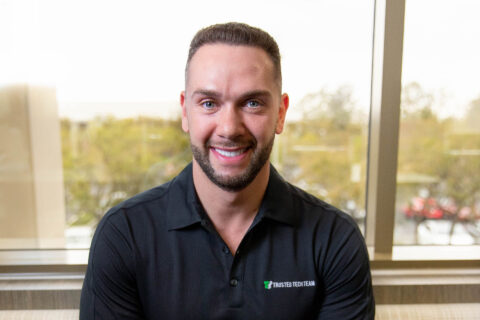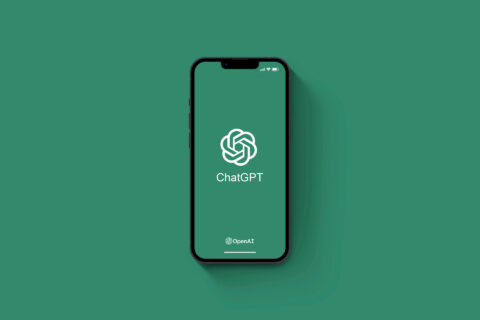
The app market is booming. There’s absolutely no denying that. Within 3 years, there will be an estimated 6.1 billion mobile users globally. In 2017 alone, the mobile app market is expected to bring in over $77 billion dollars.
People love their apps.
What’s more? Those numbers only scrape the surface of this rapidly expanding market. Add desktop apps to the mix, and the number of users and amount of dollar signs they’re bringing in is nearly unimaginable.
If you’re headed down the path of creating your own app startup, your timing is perfect. Welcome to the world of exploding growth and constant change.
What happens, though, when you, the ambitious entrepreneur, have no technical background to speak of? Can you still launch an app startup, even without being able to navigate the technical side of your own business?
Fortunately, the answer is yes. Not only that, you have options. Keep reading to decide which choice is right for you, your budget, and your budding startup.
1. Find a tech co-founder
Many appreneurs choose to find a tech co-founder who will take leadership of the programming and digital strategy. Not only do co-founders bring vital knowledge to a startup, they can offer valuable perspectives, too.
A co-founder comes with positives and negatives.
What are the pros?
- If you don’t have a technical background, this person will help cover all your bases
- An extra set of eyes, ears, and brain power can do wonders for your startup
- Having a co-founder means no longer being alone, and that can change the entire game, especially when it comes to decision making
Of course, with those positives come several negatives.
- With a co-founder, your app startup is no longer entirely in your hands, meaning the control and equity is split
- Finding someone who values your app ideas as much as you do can be difficult
- Identifying a co-founder who values your ideas and has the right skill set can be time consuming
For some entrepreneurs, a co-founder is the right answer. If that’s you, reach out to your network. Referrals and industry peers with familiarity can get the ball rolling much faster.
2. Hire developers
If you’re not ready to find a co-founder (or don’t want to), hire a team of developers. You, as the founder, would oversee the developers, possibly appoint a lead developer, and guide them through the app development process.

Unfortunately, it can be difficult to work with developers when you can’t actually guide them. Sure, you can check in on progress and receive updates, but overseeing a team of technical developers isn’t straightforward if you don’t have an understanding of programming languages.
Plus, hiring a team of developers to handle your technical endeavors is by no means cheap. Unless you have boundless funding, expect to invest heavily in this area.
3. Hire an app development agency
This option is similar to hiring a team of developers, but agencies tend to be larger and more established.
With an agency, you’ll typically be assigned a team and project manager. They’ll be on board with you throughout the entire process. Expect to play an integral role throughout the development stages as you provide feedback, testing, and suggestions.
The win here is that agency teams don’t require you to take on a management role. Agency teams already have managers. The weight is off your shoulders.

Of course, with an established, large, and well-managed agency comes steep overhead. Unless you’re prepared to pay upwards of $100k+ for your app startup’s base (as in, the most basic version of your app), this option isn’t for you.
In fact, it’s not unusual for minimum viable products to run a bill of $300,000 or more. Add testing and multiple iterations to the tab, and without significant funding, it’s easy to get stuck.
4. Leverage visual programming
If you knew how to code, you could develop your own app. You could create a basic version, send it to market, validate your idea, and test with users in real-time.
You wouldn’t have to spend time and money on co-founders, developers, or agencies. You could, in fact, do it on your own – with complete control over design, function, and scalability.
But you don’t know how to code, and it can take years to learn the specifics required to create an entire app.
Which brings us to visual programming. Platforms like Bubble or Kodu, similar to “drag and drop” user interfaces, take care of the programming for you. Not a single line of code is needed from your end, yet the options for app development are virtually limitless.
Visual programming platforms like Bubble take the ease of “drag and drop” site builders and combine the vital element of a “back end.” In other words, they allow you to create an app that can work with live data (versus simply having a pretty website), just by drawing elements on pages with your mouse.
Yes, you can take various paths to launch your app startup. But if you lack a technical background and want to create a minimum viable product (MVP) with limited funding and keep 100% control, visual programming couldn’t be more perfect. It opens the doors to an entirely new wave of entrepreneurs, or, in this case, appreneurs.
As the app market continues to grow, if you’re missing a technical background, you’re not missing out. All it takes is a little creativity, and your vision can be brought to life and put into the hands of countless curious users in need of your solution.
This article has been edited.
Gaby Román is the face behind Coaching Bubble, an online business created to help non-technical people develop fully functioning apps on the Bubble platform. As an non-programming appreneur herself, Gaby went through the process of hiring an agency to develop her own app idea, which led to a quickly draining bank account. After finding Bubble, she shifted her focus to helping other entrepreneurial people tackle the app world, too – no technical backgrounds required. Connect with @thegabyromanon Twitter.
© YFS Magazine. All Rights Reserved. Copying prohibited. All material is protected by U.S. and international copyright laws. Unauthorized reproduction or distribution of this material is prohibited. Sharing of this material under Attribution-NonCommercial-NoDerivatives 4.0 International terms, listed here, is permitted.













